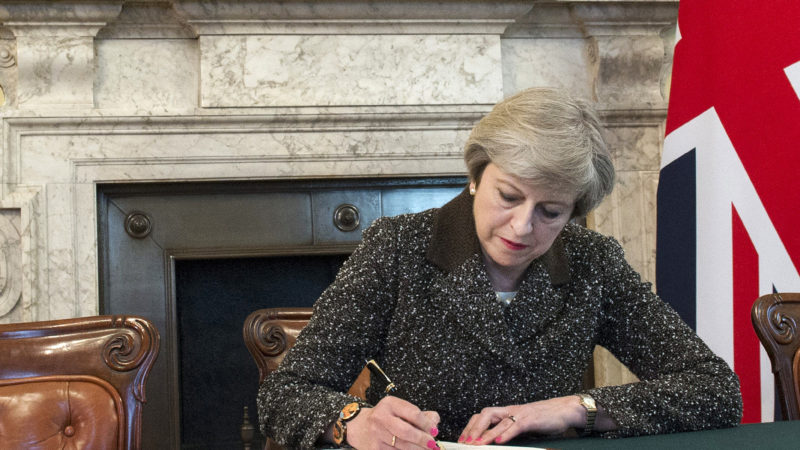The leaders of Britain and Ireland agreed on Monday that they want to keep an “invisible” border between Ireland and Northern Ireland after Britain leaves the European Union, Irish Prime Minister Leo Varadkar said.
After talks with British Prime Minister Theresa May in London, Varadkar said the two governments also want to retain the Common Travel Area, which allows Irish and British citizens to cross the border without a passport and grants mutual voting rights in the two countries.
He said they have a “shared desire” to restore power-sharing in Northern Ireland’s devolved government, which has been suspended since January, before a June 29 deadline.
“We’re confident that can be done,” Varadkar told reporters at a joint press conference with May, on his first overseas visit since taking office on June 14.
May held talks over power-sharing in Northern Ireland with the leaders of five political parties last week, but there was no sign of any breakthrough.
Three of the five parties voiced concerns over a plan for Northern Ireland’s Democratic Unionist Party (DUP) to lend support to her minority government on key votes in the British parliament, saying they were worried that May could reach a secret deal with the party.
“Any agreement with the DUP will be made public when it’s reached,” May said on Monday, adding that talks were continuing.
Varadkar said he was “reassured” by her comments.
May turned to the DUP after she lost her majority in parliament in a surprise election setback on June 8.(dpa/NAN)



perfect post, you couldn’t have explained it better im gonna add it to my website leagle.com